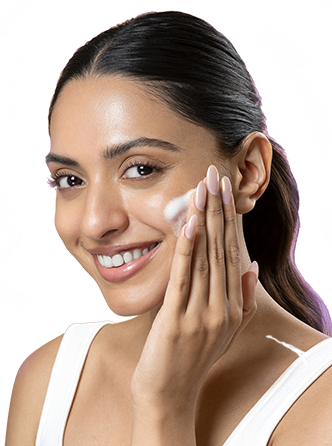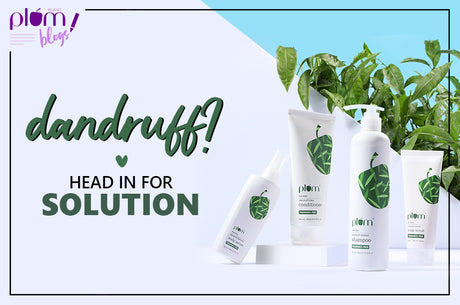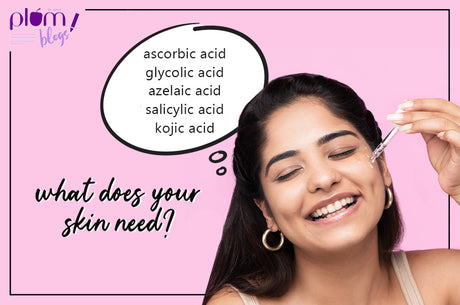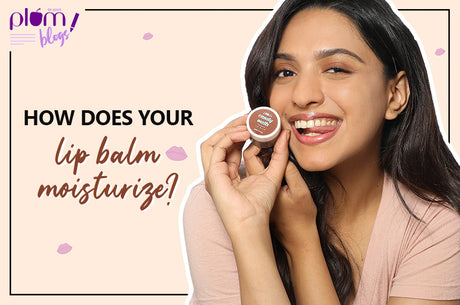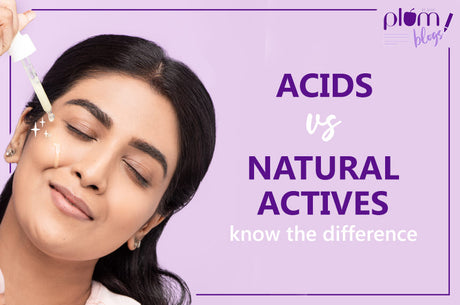
If there was one tough question in skin care (and we get asked lots of them), this had to be it. Two super ingredients. They sound similar, are used to treat very similar skin conditions and are equally loved by users around the world. So how are they different, and is one better than the other? Let's find out!
The tea tree scorecard
Where's it from
Tea tree has little to do with tea as we know it. Instead, tea tree is a generic term for a group of plants found mostly in Australia. Tea tree oil doesn't occur naturally but is obtained by distilling the leaves of tea trees.
What does it do?
Tea tree oil is great at killing microbes, particularly fungi (which are particularly hard to stamp out). Which means it's been traditionally used as an antiseptic, and in treating conditions like acne and dandruff, which are also caused by microbes.
How does it do it?
Tea tree comprises ~ 40% of a compound called terpinen-4-ol, that's good at killing microbes. It's the presence of this compound that defines the quality of tea tree oil globally.
Does it work?
Depends. Tea tree oil has generally been successful as an anti-acne treatment (it's used in 100% pure form as well in diluted formulations). It's use in other areas has met with mixed success.
What should I watch out for?
- Tea tree oil should never be taken internally - it's poisonous when ingested.
- Undiluted tea tree oil can be harsh on skin. Side effects on some people range from allergies to redness and swelling.
- Tea tree oil is generally not recommended for use by pregnant or lactating women, due to insufficient safety data.
Do note that the above precautions apply to undiluted tea tree oil.
And here's how green tea stacks up
Where's it from
Green tea (and white tea, as well) is obtained from the same Camellia sinesis plants that give us our everyday black tea. The process used to make green tea from tea leaves is different, which makes them retain a higher proportion of antioxidants than conventional tea.
What does it do?
Green tea is rich in antioxidants, which makes it useful for a variety of internal and external uses. Regular green tea drinkers have been proven to lead longer, and in general, healthier lives (just summarizing a whole host of studies here). Applied on skin, green tea is known to be an excellent acne fighter (here's how), anti-ageing ingredient and blemish fighter.
How does it do it?
The magic of green tea is to do with the proportion of polyphenols (antioxidant compounds) in it. Many issues with skin care such ageing, blemishes, acne (caused by oxidation of sebum) have oxidation as a key cause - and green tea is just great as an antioxidant.
Does it work?
Yes, mostly. Clinical studies with green tea drinkers have proven some (but not all) of the claimed benefits. The benefits on skin care, are however more widely accepted and documented.
What should I watch out for?
Very little, other than what other ingredients might be inside the formula you're using. Green tea has little or no documented side effects on skin, and is of course great for internal consumption as is.
So which one is better for me?
For internal consumption, it's of course green tea (remember tea tree oil is toxic if consumed). On skin, if you're looking for targeted anti-acne treatment, then tea tree oil (and its products) should definitely be on your list. If overall skin health (besides just acne treatment) is important, then green tea is an equally strong (and in some cases better) contender. Hope this helps you decide!
Disclaimer: As of the time of writing this post, Plum includes green tea in its skin care products, but not tea tree oil. In the future we could consider using tea tree oil if it meets our overall formulation requirements. This post itself is unbiased and is not influenced by our current choice of ingredients.
Your turn
So, do you have any favourites from between the two? What's your experience of using tea tree and green tea products? Let us know in the comments below.
And if you'd like us to do any other ingredient comparisons, let us know, too. Ciao!
Related posts
Get Green Tea in your CTMPAcne: Here's Why Green Tea Works
Antioxidants: must-have goodies
Glycolic Acid: Skincare Super-ingredient Demystified
A step-by-step guide to care for oily skin
Related products
Green Tea Face Care Full SetGreen Tea Pore Cleansing Face Wash
Green Tea Alcohol-Free Toner
Green Tea Mattifying Moisturizer
Green Tea Clear Face Mask


